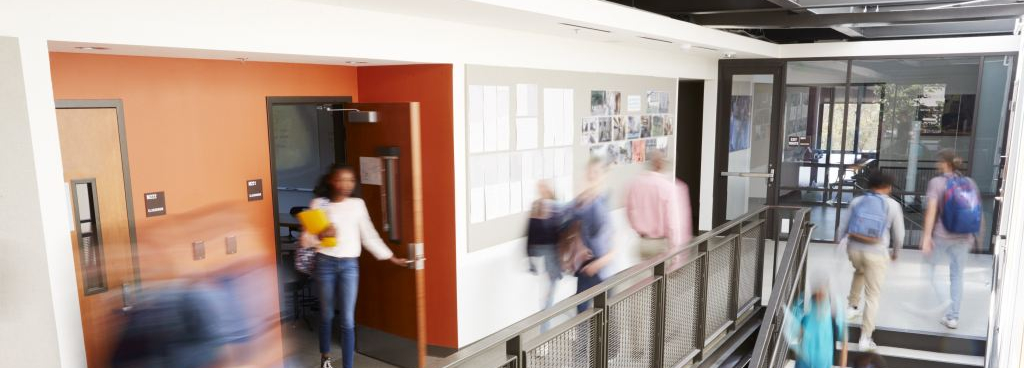IvyWise On-Demand: It’s Not Too Late to Plan for Summer 2025
Summer is just around the corner, but it isn’t too late to plan for a productive break! From conducting an independent project to attending a summer program at a university campus, there are several ways for you to fight summer brain drain and stay on track with your college admissions prep.
Watch Now
By Priyam, IvyWise Master Tutor
Summer “brain drain” or the “summer slide” — the theory that students stop learning over summer break and even lose some of what they have learned during the school year — is a real phenomenon that has been documented by researchers for the past several decades. However, you can keep your brain active during the summer in several ways to prevent losing any of the gains you made over the previous academic year.
Continuing to learn during times of educational lulls can seem like a tall task. What parents and students need to realize, however, is that summer learning does not have to mean being buried in textbooks.
Consider that 65% of kids in grade school may end up doing work that hasn’t been invented yet. Having a growth mindset is an important thing to start early and carry over into adulthood. According to the Bureau of Labor Statistics, more employers value how well you learn over other hiring factors. Learning is a habit, much like getting your body in shape. You can’t exercise for four years, then say you’re set for life. You need to keep working at it. Just as fitness experts advise us to form an exercise habit we enjoy, so we’ll stick with it, you also need to figure out how to learn in a way that is enjoyable and becomes a lifelong habit.
How Summer Break Impacts Learning
When looking at a comparison between students who take standardized tests before and after the summer break, researchers have found that many students tend to test worse at the end of summer break — with larger declines in math scores than reading. This suggests that taking an extended break from learning during the summer can impact students’ performance and retention for the next school year.
It’s worth noting that students can learn other important skills during the summer from their families, friends, and communities that aren’t so easy to measure, like relational skills, and even practical math skills used to play games. The most important way to fight summer slide is to engage your brain in stimulating and creative activities to offset the effects of constant screen time spent on social media.
Here are some ways to avoid summer brain drain that can also help foster life-long learning habits.
Summer Reading
Reading can help engage students in something they are specifically interested in and cultivate passion. Many colleges or internships will ask about activities or what students like to read. It becomes easy to answer if you prioritize summer reading, whether it’s books, newspapers, magazines, blogs, or other publications.
Summer Programs
Great summer programs are available for all interests, whether science, engineering, computer science, art, astronomy, etc. These programs enable you to engage in educational activities while having fun at the same time. Do some research to find programs that match your interests like photography, art, writing, science, and more.
Test Prep
It is not advisable to spend your entire summer on test prep, but it’s something that you can do in conjunction with other summer activities. Using free time to take practice tests, work on areas of weakness, or meet with a tutor can help you reach your goal score and prevent the loss of educational gains over the summer.
Summer Courses
Taking a course at a college of interest or even at a local university can help with gaining credits while in high school and also further contribute to cultivating interest in specific areas. Taking an online course on an unfamiliar topic or a hobby can lead to an enriched summer — learning to cook an exotic cuisine, paint with watercolors, play a musical instrument, or speak a foreign language. The benefit of online courses is that you can be on your tablet while you sit by the pool.
Volunteering
Volunteering is not often equated with learning, but the two activities are closely connected. Giving time to a worthy cause can help you see social issues in a new light and find new interests. Participating in community service opportunities can help you connect with new people and even positively impact your college admissions chances.
Traveling
If there are family travel plans over the summer, find out what the destination has to offer and take advantage of the educational activities. Visiting historic sites and landmarks is a fantastic way to learn about history and geography. Trips to a museum, zoo, farm, and other interactive activities promote learning, and spending a day at a new place is exciting and memorable.
College Applications
And of course, for rising seniors, summer break is the perfect time to begin working on college applications. You can create a Common Application account now and all your information will be rolled over on August 1. This gives you the opportunity to start writing your personal statements since the 2024-25 Common App essay prompts have been released, as well as any supplements that individual colleges release throughout the summer.
Getting the bulk of college applications done during the summer break will not only keep your mind exercised, but it will also relieve a lot of stress this fall. After all, you won’t have to juggle college apps on top of regular coursework, extracurriculars, and any SAT or ACT retesting.
Keeping the brain engaged and growing over the summer doesn’t have to be boring! Students can do many things over the summer to fight summer brain drain while engaging their interests and having fun! The summer is a wonderful time for you to continue to explore your passions, learn new skills, and prep for the future, all the while enjoying a break from the structure of the school year.
To learn about more learning opportunities this summer — including tutoring and test prep services — contact us today. We can help you get on track with your academic and standardized test planning.




